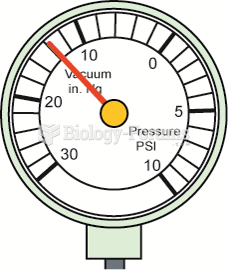Answer to Question 1
ANSWER: A persistence forecast is simply a prediction that future weather will be the same as present weather. If it is snowing today, a persistence forecast would call for snow through tomorrow. Such forecasts are most accurate for time periods of several hours and become less and less accurate after that. Persistence forecasts are also more useful at those times and places where the weather tends to change less dramatically.
The principle involved in the steady-state, or trend forecast, is that surface weather systems tend to move in the same direction and at approximately the same speed as they have been moving, providing no evidence exists to indicate otherwise. Suppose, for example, that a cold front is moving eastward at an average speed of 30 km per hour and it is 90 km west of your home. Using the steady-state method, we might extrapolate and predict that the front should pass through your area in three hours.
Answer to Question 2
ANSWER: Because the weather affects every aspect of our daily lives, attempts to predict it accurately using observations of the natural world have been made for centuries. One of the earliest attempts was undertaken by Theophrastus, a pupil of Aristotle, who in 300 B.C., who compiled all sorts of weather indicators in his Book of Signs. A dominant influence in the field of weather forecasting for 2000 years, this work consists of ways to foretell the weather by examining natural signs, such as the color and shape of clouds, and the intensity at which a fly bites. Some of these signs have validity and are a part of our own weather folklorea halo around the moon portends rain is one of these. Today, we realize that the halo is caused by the bending of light as it passes through ice crystals, and that ice crystal-type clouds (cirrostratus) are often the forerunners of an approaching cyclonic storm. Although numerical weather prediction has proven to be much more powerful a tool than these ancient methods, some types of weather predictions can still be made by observing the sky and using a little weather wisdom. If you keep your eyes open and your senses keenly tuned to your environment, you should, with a little practice, be able to make fairly good short-range local weather forecasts by interpreting the messages written in the weather elements. For example, the movement of clouds at different levels can assist you in predicting changes in the temperature of the air above you, and knowing how the temperature is changing aloft can help you predict the stability of the air, as well as whether falling snow will change to rain, or vice versa.






